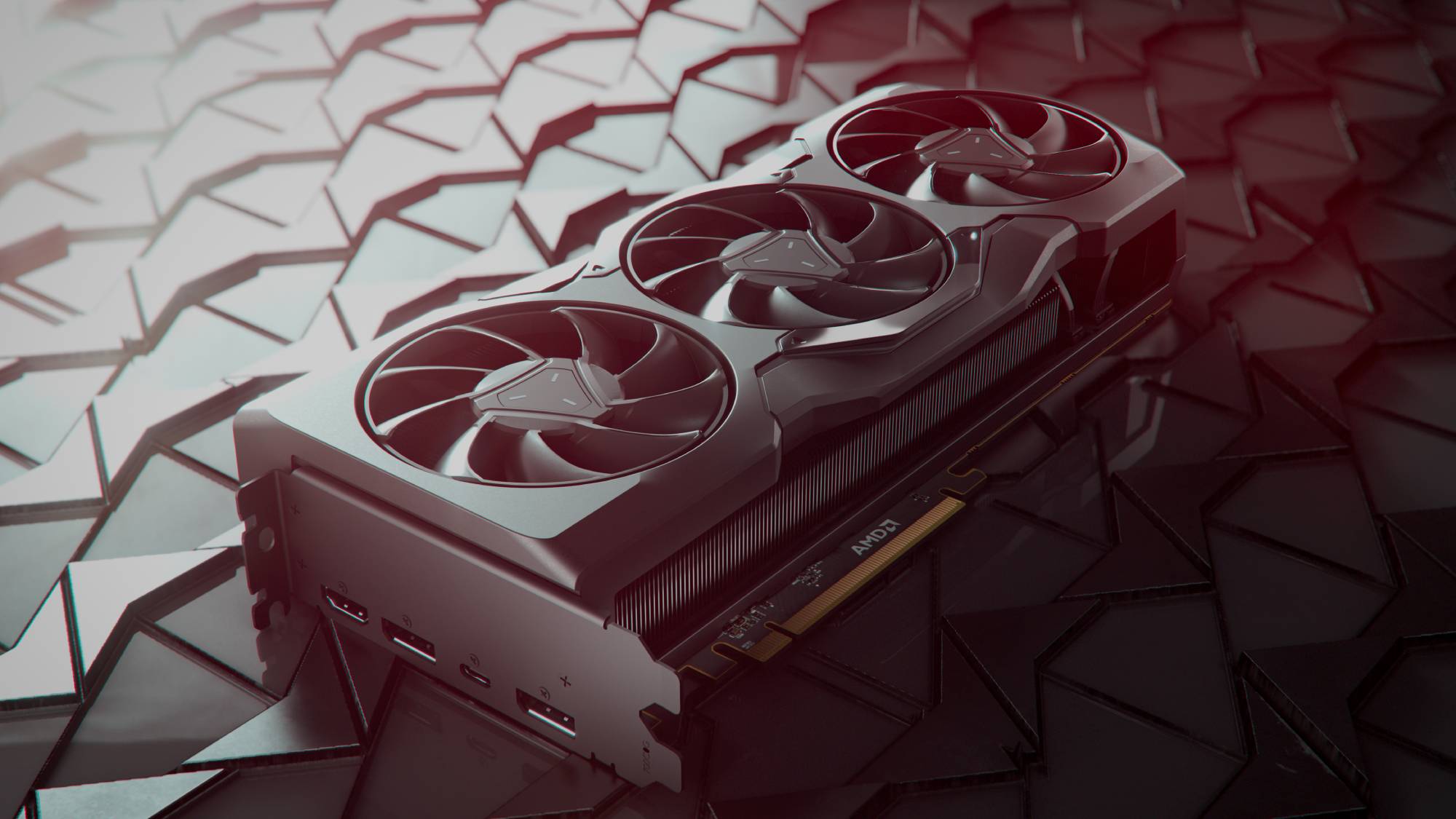AMD accused of treating consumers as 'guinea pigs' by shipping unfinished RX 7900 GPUs
A possible black mark against an otherwise awesome graphics card

Sign up for breaking news, reviews, opinion, top tech deals, and more.
You are now subscribed
Your newsletter sign-up was successful
Well, maybe it was all too good to be true. We were seriously impressed with the Radeon RX 7900 XTX, AMD’s new flagship GPU, when we reviewed it, but new reports are suggesting that all is not well with the newly-launched graphics card.
The first sign that something was amiss came from Twitter user @uzzi38, who noted that power issues seemed to be causing weird variance in the RX 7900 XTX’s clock speeds depending on the program being used. As discussed in the Twitter thread below @uzzi38’s post, the card’s operating frequency varied from 1,594MHz to 2,994MHz across a variety of tests conducted by TechPowerUp, while the voltage remained below 1V for almost the entire process.
Depending on the title the 7900XTX can run anywhere from below 2.4GHz to just over 2.9GHz, all the while sitting around or below 1V. That's a massive variance.I don't think I've ever seen such a massive red flag before when it comes to missing power targets. pic.twitter.com/AEGWc424kkDecember 12, 2022
These tests were run at the card’s default settings, and it’s obviously a massive variance. A few days later, Dutch YouTuber and GPU reviewer @NadaOverbeeke found that the card’s clock speeds would leap up – seemingly at random – in certain games, resulting in a corresponding jump in performance. Modern Warfare 2 showed a framerate variation of around 20% in separate tests on the same GPU without any settings being adjusted.
Some really odd behavior with the ASUS TUF 7900 XT. It'll run 2400 MHz in one game, then 2900 MHz in the next. All stock settings, with similar power draw. 🧐December 14, 2022
Unfortunately for AMD, it gets worse. Around the same time as Nadalina’s findings, Twitter user @Kepler_L2 located a non-functional shader prefetch in the Navi 31 A0 silicon that powers the RX 7900 XTX. Kepler believes this indicates that AMD chose to release unfinished silicon; ‘A0’ in this context refers to ‘revision 1’, or the first version of the silicon to go into production. This means that future models of the Navi 31 GPUs may not feature the same non-working prefetch.
Analysis: AMD’s rush to launch RDNA 3 might cost it the moral high ground against Nvidia
Anyone who's been paying attention will know that we’ve been fairly cold on Nvidia lately: between melting power adaptors on the RTX 4090 and the messy ‘unlaunch’ of the RTX 4080 12GB (not to mention the actual RTX 4080’s sub-par performance for the $1,199 asking price), Team Green hasn’t been doing a lot to foster goodwill among consumers.
Enter AMD, with some very competitively priced new GPUs – the RX 7900 XTX at $999 and the slightly less powerful XT variant at $899. Initial showings were strong, with the XTX card beating the RTX 4080 in many areas despite costing $200 less. Given earlier statements from Nvidia about how GPUs would continue to increase in price, while AMD and Intel insisted that they’d be battling against such a rise, we were sitting firmly in the red corner.
But these new problems with the RX 7900 XTX could cause AMD to lose some of the goodwill it’s managed to accumulate over the past few months. Releasing unfinished silicon is a bad look for any big tech company; the shader prefetch problem isn’t an issue that can be quickly fixed with a driver update (although AMD will eventually be able to improve the performance), and releasing newer physical revisions of the GPU won’t help anyone who's already purchased one.
Sign up for breaking news, reviews, opinion, top tech deals, and more.
As to why AMD might have released unfinished silicon, that’s anybody’s guess. The most reasonable line of speculation is that AMD had a pre-Christmas launch window that it couldn’t afford to miss. AMD will, of course, continue to improve the RX 7900 XTX’s performance via driver updates, with ray-tracing performance expected to get a boost in the coming months as AMD works out the kinks.
We've reached out to AMD for a statement regarding these reports, and will update this article if we get a response.

Christian is TechRadar’s UK-based Computing Editor. He came to us from Maximum PC magazine, where he fell in love with computer hardware and building PCs. He was a regular fixture amongst our freelance review team before making the jump to TechRadar, and can usually be found drooling over the latest high-end graphics card or gaming laptop before looking at his bank account balance and crying.
Christian is a keen campaigner for LGBTQ+ rights and the owner of a charming rescue dog named Lucy, having adopted her after he beat cancer in 2021. She keeps him fit and healthy through a combination of face-licking and long walks, and only occasionally barks at him to demand treats when he’s trying to work from home.